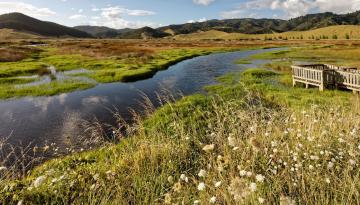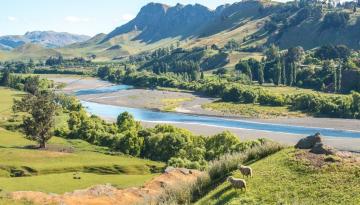
There are concerns new freshwater regulations will be difficult to implement, particularly for small councils.
The Government announced the rules on Thursday, earmarking $700 million to help the primary sector and other groups implement the changes, which are aimed at stopping farm run-off entering waterways.
The new rules ban stock from entering waterways more than a metre wide and place a cap on how much synthetic fertiliser can be used on farms, as well as introducing a raft of other changes.
Although farmers have for the most part reacted favourably to the new rules, there are concerns that local bodies will struggle to put the regulations into practice.
"The Government has passed quite a set of robust amendments here but my concerns are with the capacity of regional councils and unitary authorities to be able to implement these actions on the ground," Dr Nicholas Kirk, an environmental social scientist at Manaaki Whenua/Landcare Research, told Newshub.
"It's not just the big councils like Canterbury and Waikato that are going to be struggling with this, it's also smaller councils like Gisborne or the West Coast Regional Council which also desperately need more staff to be able to turn this into action on the ground."
His views were echoed by Local Government New Zealand (LGNZ), a group that represents the interests of councils across the country.
LGNZ president Dave Cull said the new regulations will put further strain on councils.
"It will be a challenge, particularly for smaller councils, to find the resources and the capacity to meet these measures," Cull told Newshub.
He said more capacity is needed in a number of councils, though the level of support required may vary.
"The regional councils have signalled that they would need to increase their staffing in some areas because some of this stuff is quite fine-grained and quite ambitious."
Dr Kirk said councils would need to invest more in science.
"We need more science capacity in our regional councils just in order to be able to measure and monitor our freshwater bodies so that we know what's going on. We also need the hands on the grounds to be able to help farmers and others make the changes."
The Government's plan came after a consultation period last year that received more than 17,500 submissions.



